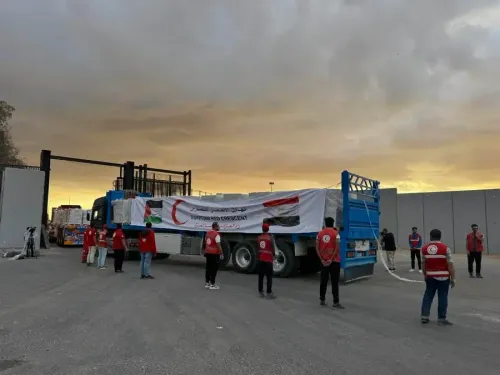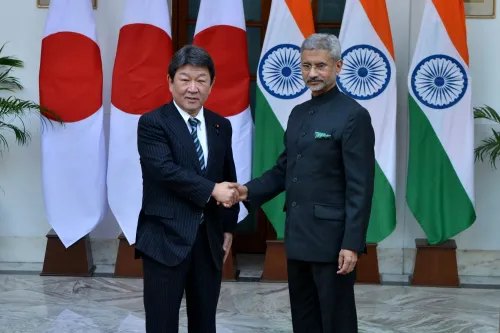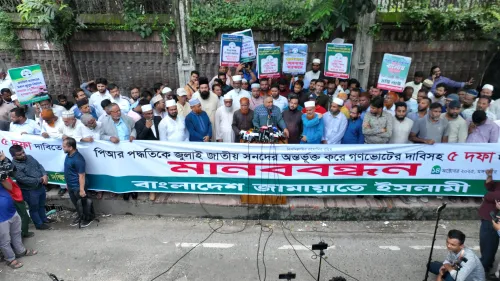How is South Korea Strengthening Measures Against Global Phishing Scams?

Synopsis
Key Takeaways
- President Lee Jae Myung calls for enhanced measures against phishing scams.
- Concerns raised about potential political connections to scammers.
- A group of 64 South Koreans involved in scams were repatriated.
- Security measures for online government systems are being strengthened.
- The National Intelligence Service is playing a critical role in addressing these issues.
Seoul, Oct 21 (NationPress) South Korean President Lee Jae Myung emphasized the need for more robust measures to combat global internet phishing scams during a Cabinet meeting on Tuesday. This call to action follows a disturbing series of job scams that involved the abduction and detention of South Koreans in Cambodia.
President Lee urged relevant authorities to devise an 'extraordinary' government response that goes beyond traditional methods, as reported by the Yonhap News Agency. He stated, 'We need measures that are stronger and tougher than those currently in place for international crimes and they must be implemented accordingly.' Lee pointed out that voice phishing and transnational crimes have been persistent threats to South Korea.
He raised concerns about potential political connections among the scammers, indicating that victims were systematically lured and forced into working at scam centers. Lee directed Yoon Chang-ryeol, the head of the Office for Government Policy Coordination, along with the foreign ministry and the police, to formulate a new and more effective strategy.
Additionally, he highlighted that he had issued separate directives to the National Intelligence Service, the nation's intelligence agency.
A group of 64 South Koreans, allegedly linked to online scam operations while detained in Cambodia, were repatriated to Seoul under police supervision last Saturday. Earlier that same day, the remains of a South Korean university student, reportedly tortured to death by a criminal group near Bokor Mountain in Cambodia last August, were also returned to South Korea.
On October 17, the South Korean interior ministry announced it had enhanced security measures for online government systems after discovering signs of hacking attempts targeting the government’s administration platform. This decision followed a report by Phrack, an online cybersecurity publication, indicating that numerous South Korean government branches and companies had been the targets of hackers.
The interior ministry stated, 'In mid-July, we confirmed signs through the National Intelligence Service (NIS) that an external internet PC accessed the Onnara system via the Government-Virtual Private Network (G-VPN).' The Onnara system serves as the online platform for government operations, managing official documents and internal workflows.









